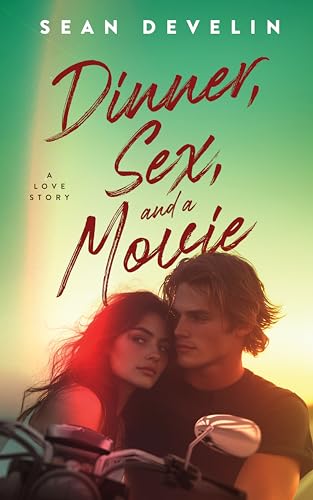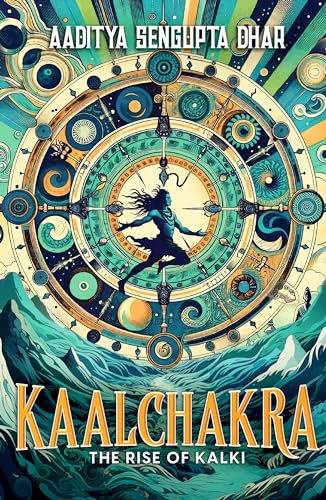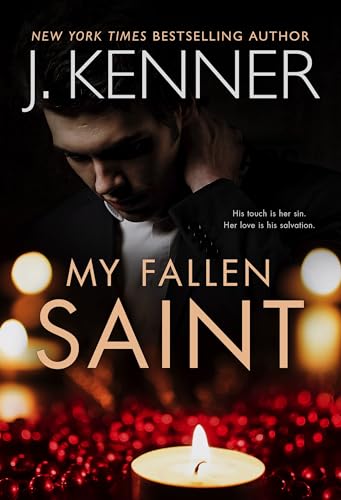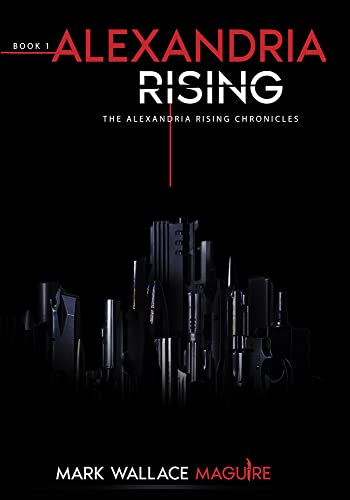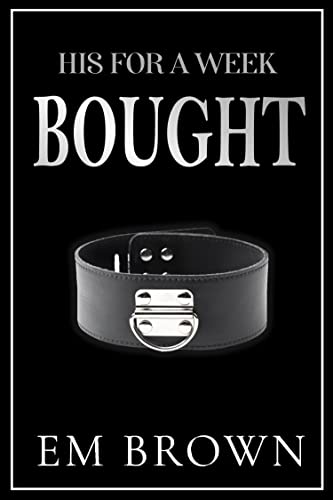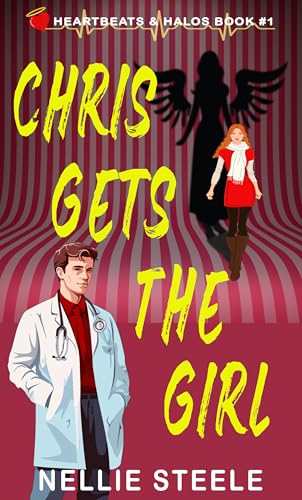Jonathan Worlde’s Deep in the Cut:
by Jonathan Worlde
5 stars – 2 Reviews
Text-to-Speech: Enabled
Here’s the set-up:
Siskal Bonifante is a Mexican-American immigration lawyer who is accustomed to managing his practice in Washington D.C. on the sleazy side – high volume and low quality for whatever the market will bear. His world takes a turn when his Russian nanny clients start disappearing and he finds himself caught in a federal investigation for sex-trafficking, and the bad guys take him for a ride to find out how much he knows – and try to bury him! The judge who was going to hear his Nicaraguan client’s asylum case is murdered and Siskal is contracted to find the murderer – by the dead judge speaking to him from the grave. His investigation leads him from the hot Latino salsa clubs in Washington’s Hispanic barrios to the corridors of power on Capitol Hill. What he uncovers leads him on a race against time to stop the executioner’s knife before it strikes again.
Jonathan Worlde’s ground-breaking novel Latex Monkey with Banana was winner of the prestigious Hollywood Magnum Discovery Award and became a cult classic. The offbeat style was described as “like Kinky Freidman if he had a Latino soul.” Deep in the Cut was a finalist (under a different title) in the annual St. Martin’s Best Private Eye Novel contest. Jonathan Worlde’s series explores the culture of America’s undocumented immigrants who try to survive in an underground cutthroat world of alien –dope-gun smuggling and who struggle to feed their families while avoiding the knock of immigration agents at their doors.
(This is a sponsored post)
The author hopes you will enjoy this free excerpt:
PROLOGUE
The two occupants of the blue BMW drove silently through the summer night. Wind from an approaching storm gusted, blowing branches and debris into the car’s path. A leafless oak branch blew up against the side of the car, scratching the enamel with skeleton fingers. The driver grimaced at the sound. The female passenger asked in a timid voice, “Do we have to go this far out?”
“It’s better this way. There’s easy access to the river up here, and places we can stash the body where it won’t be found for a couple of days.”
“But she will be found?”
“Sure. The smell. There’s Vietnamese immigrants, they go fishing off the rocks. Every year one or two of them drown when they slip and fall into the water, the current’s really swift. They’ll find her.”
“You’re not worried about her being identified?”
“How they gonna identify her? You blew her face off.”
They continued heading west along Canal Road from Washington to Great Falls, Maryland, with the dark shape of the Potomac River looming on their left. They pulled into a parking lot which, during the day, would be full of tourists’ vehicles. This section of the Chesapeake and Ohio Canal was kept in good repair. The Park Service ran historic river boat tours up and down the canal.– the boats drawn by mules and the park employees dressed in early 19th century garb,
“We just got to get her out to the bank. The rocks run out into the middle of the river, I’ll dump her there.”
They tugged and pulled the corpse, wrapped in a blanket, out of the back seat of the car. The driver, a corpulent man, grunted as he lifted the corpse over his shoulder.
“You have it?”
“She only weighs about a hundred pounds. I’ll be all right. You can stay here.”
He carried the body past a construction site at the edge of the lot, where the concrete was torn up and picks and shovels were strewn about. He went through the trees and found the path he was looking for, moon-light leading the way to a wooden bridge that crossed the canal in the direction of the river. Passing through the last of the trees, the man saw that the moon was especially bright on the river, and he could easily make his way in the open along the flat rocks. He thought it would be a beautiful place to relax, beyond the grime of the summer city smog — if he weren’t lugging a corpse. A ghostly brightness, he said to himself. I should… The thought went unfinished, because he miscalculated a depression in the rocks and went falling onto his face, the corpse on top of him.
“Hijo de puta!” he muttered into the rocks. Both of his upper arms were badly scraped. He lay there a few seconds, cursing his stupidity, indulging in self-pity. His left knee was banged up, beginning to throb. He struggled to his feet again and gathered the blanket around the corpse, to hoist it back into the air, not nearly as upbeat about the task at hand as a moment ago. He was more careful now, stepping from rock to rock. In a few minutes he found a channel where the water increased its speed in passing. Bending forward, and being sure not to fall in himself, he dropped the load into the spuming water. He estimated the object would come to rest on one of the rock islands in the middle of the river, or snag on a submerged rock or log. Either way, it would give the authorities something to think about when they found it, and there was a good chance the body would be so badly beaten by the water and rocks, they wouldn’t even suspect that the corpse’s missing face was the result of human intervention.
When he returned to the car, the woman was still standing beside it, unmoving. A tall oak tree cast a moon shadow across her face. When he got nearer he could see that her expression was one of frozen terror.
“What’s wrong?”
She mouthed a silent scream.
FRIDAY
I’m an immigration lawyer. I specialize in deportation cases, assisting my people in their time of need, here in their land of self-imposed exile. Who are my people? La Raza, Hispanics. My dad was Mexican, my mom was a Brooklyn Jew of German descent. He met her forty-two years ago at a diner in Brooklyn where he was working illegally as a dish washer. She worked behind the counter. He swept her off her feet with his dark eyes. Thank God they never lived to see the day that I was this corpulant. What would the old man think?
From my office, at the corner of 18th and Columbia, right in the heart of the Adams Morgan neighborhood in Washington, D.C., I can see a dozen businesses that are owned and operated by Latinos. Up and down the street are immigrants and refugees from most countries in Latin America and Africa. My office is in what’s called the “lawyer’s building” because so many immigration lawyers have offices there. It’s like a mini-United Nations. Working in the building are Hispanic lawyers, an Arab, an Ethiopian — once the cops had to be called because the Pakistani and the Indian lawyer were reliving Pakistan’s war of independence in the hallway with boots and fists and a knife.
It seems that we’re all vying for the worst reputation. Immigration lawyers get a bad rap. We’re not all disreputable scumbags taking money from our clients and screwing them over by doing a shoddy job on their cases. But I was. Disreputable, that is. Before the events of this story.
The neighborhood has gone through rapid gentrification, with new restaurants and cafés opening, up and down 18th Street and along Columbia Road, and apartment buildings converting to condos. Used to be, the garbage would pile up in the streets, the cops wouldn’t bother to kick the homeless bums off the curbs, and a man could feel at home — go to a bar, have a few drinks, check out the whores down the street, get some blow on the corner. Now all that action’s been pushed five blocks east of here, and the college students and Capitol Hill yuppies come tramping through the neighborhood every night, grabbing up all the parking and making a racket. But the immigrants and illegal aliens are still here. If they are ever finally pushed out, then it will be time for me to go.
It was a Friday afternoon in early August when Olga Navaratlava came to my office. She’d only been in the country a week. I was absent-mindedly looking out my office window, watching a Nicaraguan vendor who runs a bootleg CD and video stand on the corner, when I was distracted by the sound of footsteps outside my office door. I turned to see the silhouette of a tall, shapely woman through the glazed office door glass. The woman hesitated, heightening my expectations, before knocking.
“The door’s open.”
She turned the knob and pushed the door aside. Standing in the shaft of light formed by the half-open door, dust motes suspended in the air around her like fairy dust, was a gorgeous young woman, her backlit auburn hair radiating the sunlight. Her big blue eyes had that tentative expression that newcomers to the country often have when they’re still getting their bearings. She could easily be a model.
She introduced herself. “I’m Olga Navaratlava.”
It took me a second to place the name. “Oh yes, one of my nanny cases. It’s a nice surprise that you’ve dropped by. Come in, sit down. You care for a coffee?”
“Yes, thank you, black.”
She moved to the chair in front of my desk and took a seat with the poise of a dancer. I went to the convenience table in the corner and poured her a coffee, but kept my eyes on her. I spilled the hot liquid on my hand, burning myself, and stifled a curse. I put the cup on the desk in front of her and went back to my spot, tucking my shirt in over my gut when my back was turned to her.
“Now then, what can I do for you today?”
“I come to see you to thank you for the work on my case, and to ask what else I must to do to stay illegal. “
“In order to stay legal.”
“What did I say?”
Her face contorted in an expression of concentration, anxious to learn the language skills that mean survival in a strange land.
“You said illegal, that’s the opposite of legal.”
She laughed, putting her hand over her mouth to hide poor dental work. The gesture endeared her to me. “I am so sorry. I meant to say…illegal.”
“You said it again.” I laughed in what was meant to be a reassuring tone. “Don’t worry. I’m glad you made it to the States all right.”
My eyes couldn’t help taking a quick evaluation of her athletic body, which she probably noticed.
“And I want to now bring my mother to here.” She pronounced the ‘h’ with a sexy guttural stop.
“That could be arranged, in time. Why don’t you tell me about your family background?”
“You mean you don’t know? I thought you knew everything, it is not in my file?”
“Only the basics about date of birth, height, weight, color of eyes. That’s all the forms ask for.”
She looked around the office suspiciously. Dropping her voice: “Are there any microphones in here? Video camera?”
“What are you talking about?”
“I am still accustomed to thinking like Soviet. I am so sorry. In my country I am always assuming that KGB is watching. They are here in Washington also.”
“I don’t think you need to be afraid of them. It’s not the old days anymore. They’re on the ropes.”
“On the ropes?”
“It’s an expression. It means they don’t have the same power they used to have.”
“It will take some time for me to believe that.”
“You were going to tell me your story.”
“Where can I to begin? My mother was Jew born in Ukraine before 2nd World War. Her father a Russian miner, her mother a sewing, how you say sewing person?”
“Seamstress.”
“Yes, I think so. The neighbors deal them many problems because religion. You know about Jewish problem?”
“Yes, my own mother was Jewish.”
“So you know. Her father make to join Soviet army. He has discipline problems, they beat him, he goes prison camp. Her mother must go work camp. She is searching for him after war, he is not in camp. He dies in Siberia.”
She had full, untrimmed eyebrows. She was very sexy in her peasant girl, unmade-up appearance. I was entranced by her blue eyes – I had to steer my mind back to her words.
“Life in Ukraine is hard, her mother is destroyed. My mother works in factory when she is fourteen. Neighbors fighting them, same Jew problem. Neighbors they make synagogue into school. Mother meets Soviet Russian soldier in 1975, they have me. My father they kill in Afghanistan. I kick out of school when I am seven because I am Jew. Then the change comes, no more Soviet Union. We think things get better, but only get worse. Me and mother pushed out of apartment by Orthodox Christians, you know? I get big chance to come to States, you help. I wish to bring mother. How can I to bring her, please?”
Listening to her story, I felt like I was nailed to the chair, yet she related all of this in a deadpan voice, as if it had all happened to someone else. She had endured a life of suffering because her family had chosen the wrong God for that place and time. Her story made my own existence seem completely trivial. I should have told her that she wasn’t entitled to bring her mother to the States unless she became a U.S. citizen, which was a long and difficult procedure, one which could take many years. But I didn’t want to extinguish the flame of hope when she had only just arrived. I stalled, changing the subject.
“Is everything all right with the family where you are staying? Let’s take a look at your file. You’re up in Takoma Park, staying with the Finkelsteins. Nice neighborhood. Are they treating you all right?”
She dropped her eyes. “They are very nice, thank you. Two little childrens.”
The way she said it, with a hint of hesitation in her voice, convinced me she was concealing something. But I’m not a mind reader. And I’m not a social worker. By getting her to the States I had already accomplished my job, earned my fee.
“It is safe here in Washington? From crimes?”
How could I tell her that she had just moved to the murder capital of the country? The previous year, Washington had clocked in at 370 murders, up about forty from the year before, and this year we were on a roll to top last year. It was mostly drug-related gang violence. I didn’t want to scare her. At the same time, I couldn’t help thinking that over the years, a number of my clients had been murdered here in the land of opportunity, some of them right in my neighborhood. Last year, just two blocks from my office, my client, a Salvadoran teenager, had been stabbed to death in a struggle over his bike. Another client, a Guatemalan shop owner on Mt. Pleasant Street, was shot dead in a robbery two months later.
“Just stick to the main streets, you’ll be all right in the daytime. After a while you’ll get your bearings, and you’ll learn which places to avoid.”
She smiled at my reassuring words. “I already know about the pockpickets.”
“The pockpickets?”
“Yes, on subway, my friends say keep tight hold on purse. But I have nothing to rob, I just poor me.”
She laughed at her joke, covering her mouth again in an embarrassed gesture, but when I joined in with her infectious laugh, she laughed even harder.
“Just watch out for your passport and visa. Leave those at home. You wouldn’t believe how many of my clients come in here crying about having had their passports stolen. No need to carry it around everywhere. Too many pockpickets.”
One thing I like about this job is the chance to hear the variety of malapropisms that people come up with when they’re learning English. For me it helps keep the language fresh and alive. I had one more standard line of advice for her.
“Be sure to call me if you’re thinking about moving. I’m your lawyer, I need to be able to get in touch with you. Don’t get married without asking me first. If you were married, I’d say, don’t get divorced without asking me first. Don’t take a different job. Don’t travel. Any changes like that will jeopardize your status as a temporary worker, so you need to run them past me.”
She nodded, hesitated: “And for my mother?”
Again I fought the urge to survey her body with my hungry eyes. “Let’s talk more about that next time. I should probably see you again in a couple of weeks – I’ll take you to a nice little place I know around the corner.”
She smiled, and stood to leave. I walked her to the door. She touched my arm like I was her protector. “Thank you so much, Mr. Siskal. God will reward you.”
Her face was smiling but her eyes held fear. I had to restrain myself when she kissed each cheek European style. I wished I was a hundred pounds lighter and ten years younger.
My eyes caressed her backside as she left the office. I closed the door. I read my name backwards through the frosted glass, etnafinoB laksiS…Siskal Bonifante, Esquire. I checked myself in the mirror. I saw a big, fat-guy face, where there used to be the face of a handsome macho man. Where I used to compare myself to de Niro, now I had to settle for brown debonair eyes, bushy eyebrows and a full moustache. I had developed blinders over the years, both about my appearance and the quality of work I was delivering.
I turned back to my desk and went through the day’s unopened stack of mail. Another court appearance in Baltimore. I was expecting that. A bag-and-baggage letter for Eduardo Benitez: the official correspondence informed him to appear at the deportation section of immigration next week with a maximum of forty pounds of luggage for a free plane ride back to Chile. INS would have sent one to his address as well. That loser. Somehow he had convinced himself that I could win his case. But he’s a convicted drug dealer, what could I do for him? If they walk in here shoving money into my hands, it’s not my job to tell them their case is impossible. Everybody’s got a right to a lawyer.
What’s this? Two more letters returned from my Russian nanny clients, addressee unknown. That was odd – the same thing had happened a few times recently. Young female Russian clients going missing. Why were these girls no longer at the addresses where they were supposed to be working as nannys? If Olga were still here I would have asked her if she knew any of the other girls. I wanted to run after her but I don’t run anymore.
I played back my phone messages – they were all from clients who were getting impatient about their cases. In this business you have to ignore such calls until the tone of desperation reaches homicidal mania. Then you call them back. Otherwise, you’d be on the phone all the time, because every client thinks their case is the most important. I’d never get any work done if I was always returning calls.
Then, out of the blue, a message from immigration judge Dickens. He was calling to speak with me about, of all things, my Russian nanny clients. The message said that it was urgent that I meet him at Lautrec’s, a restaurant just down the street from my office, at 10 PM. That was all. Pretty peculiar. Why those particular clients? Whatever it was about, I knew I’d better meet him. You don’t just turn down a judge’s invitation, not if you want to stay in business.
Of the four judges in the local immigration court in Arlington, Dickens had the worst reputation for being mean, petty, shallow, ornery – just a straight-up old bastard. But one day three years ago, we were on the elevator together at lunchtime, having just finished a hearing together, and he asked if I cared to have lunch with him. We ate across the street from the court at the Chinese restaurant. He insisted on buying. He asked me if I was married. I was just going through my divorce at that time. He could tell I was pretty stressed out. He remarked that I was drinking a lot — I had four beers during lunch. I asked him if he’d ever been married. He said yes, married and divorced, with one daughter, and that at his age it was one of the great regrets of his life that he was alone. I jokingly said that we should go out cruising for chicks sometime. After that lunch together, he treated me a bit differently in his courtroom. He still chewed out my clients, but he was lighter on me.
And then one night, something happened in my neighborhood, right around the corner from my office, when I saved his ass. But I’ve never shared that incident with anyone. Suffice it to say that I was always on his good side after that. And we managed to have a quick lunch about once a month.
But just recently, only a few months ago, I heard a rumor that he might be involved in the production of porn videos. Courthouse gossip, like a whisper campaign. But I couldn’t imagine how he could be so desperate for cash that he would have to resort to meddling in the entertainment industry. I’d wanted to raise the subject with him, but because our schedules had gotten busy and we discontinued our lunch routine, I hadn’t had a chance to ask him anything about it.
It was late, seven p.m. already, and I needed a drink. Just down the street, at the corner of Columbia and Ontario, I would find action, in Sharkey’s Tropical Paradise Club. Some of the cutest chicas in town would be there. Sharkey is a Puerto Rican sax player who made a killing in the drug trade. He set up this really classy place in the renovated shell of the once glorious Ontario Theater. The club feels like pre-Castro Cuba, a classy place, with live salsa music every night. The place is a refuge for illegal aliens and Hispanic criminals, like drug dealers and alien smugglers, who just want to hang for a few hours, to dance and enjoy the music.
I put on my suit jacket, straightened my tie, ran the comb through my hair. I closed up the office and walked one block down Columbia to the club. My spirits lifted when I walked in. The band on stage was sizzling hot, the women on the dance floor were elegant and lovely. Looking around the club, I saw a few of my clients: a Dominican drug dealer who was being deported for his last cocaine bust; a Guatemalan man who was a former guerrilla and was applying for asylum; an Argentine international banker who was processing his work visa through my office.
At a table in the corner sat an attractive woman with long blond hair. Hispanic men were lining up to dance with her, but she rebuffed them. The illegals had better look out for her — she was an undercover immigration agent named Rochelle. I wondered what she was up to.
Two tables away sat a dark-skinned man wearing a black silk shirt, blue jeans and snake-skinned cowboy boots. He had a thick braid of hair running down to his belt. I could tell he was some kind of indio from Central America. He was being chatted up by a morena Dominican puta named Alex. She caught me looking and winked an acknowledgment, without losing her flow of words.
I had a seat at the bar and ordered a Cuba Libre, rum and coke. The salsa band was cookng. The dance floor was alive with people of all shades and ethnicities. The beautiful exotica women were wearing brilliant primary colors, their male partners just as elegant in their light-colored dinner jackets, thin dark ties and black greased hair. An incredible morena woman was going down on her knees before her man on the dance floor, keeping time, caressing his legs, looking like she was going to give him head right there in front of everybody. Other women were being grasped from behind, thrusting their asses into their partners’ crotches. I already needed another drink.
The music was so fine. That line of three trombones anchored the melody with a really solid, muscular brass, and the two trumpets came in on top like the icing on the cake, giving it that brilliant, sexy hot sound, syncopating off the trombones. The two horn lines merged with the tapestry of percussion, the congas, timbales and bongos embracing the horns and dazzling the ears.
The dancers had no choice but to move to that music. You get a woman with a really fine body on her, and she’s following all those counter-rhythms with her natural talents, the eye says yes, that is so fine baby, and the vision of her gyrating body in front of you ignites a charge in your groin. There’s no other music can do that.
The musicians were all Puerto Ricans, either born in New York or transplanted there from the island, except for the conga player, a Cubano, and the keyboard player, a white boy named Stanton from Michigan, with long blond hair pulled back in a tail. You know the boy can’t dance, but he lives the music. These were real professionals – the arrangements were sharp, the band was tight and clean together. Rubio, the lead singer, sang in a high quavering voice, sounding like Hector Lavoe. When the two percussionists backed him up on the vocals during the chorus, the music seemed to sweep upward like an elegant bird taking wing, and the listeners’ hearts soared with it.
The band took a break. A DJ continued the mood with top ten salsa and merengue hits. He played a salsa tune that was popular ten years ago, El Caballo Viejo, The Old Horse.
A blonde woman, about 5 feet 6 inches tall, in a strapless red evening dress that taunted the eyes, came over to the bar where I was sitting and took my hand. She pulled me out onto the dance floor. Her two girlfriends, also young and really hot, joined us. I get that a lot — women like to dance with me. For me it’s a mating dance, but for them it’s a diversion, just light exercise with an unthreatening, comical fat guy. It gets them out in the open where the real studs can notice them. To their surprise, I can do some really smooth moves. I’ve been musical since my mother pounded those piano lessons into my head when I was a kid, and I started taking salsa seriously in college, so I’ve got years of practice.
I was sweating big-time, alternating between three women and keeping them all in my sights. It felt like all the eyes in the club were on us. I didn’t mind. Anything that brought me close to the sweet honey was worth it, plus a little exercise did me good, got me ready for the next round of drinking.
I noticed another plain-clothes INS agent, Orlando, in the corner, watching us, his eyes burning with contempt. He’s a Mexican-American who seems to have forgotten what his roots were. A guy like that won’t loosen up until he has some kind of real tragedy in his own life. Right now all he did was visit misery upon the other poor aliens, whom he busted routinely for working illegally or other small-time offenses.
The words to the song were sad, about the old horse put out to pasture, past his time for love, for work, nothing to do all day but mope around. It sounded like me. But everybody else in the club was having a good time, watching me as I danced with the three latina sirens.
The song ended and I shuffled over to the bar, the sound of the three women giggling behind my back as I went. Go ahead and have your fun. I ordered another Cuba Libre.
I needed to go home and get some rest and take a shower before my meeting with Judge Dickens. I took a last look around, pried out my wallet to leave some cash on the counter, got up and walked to the door. The drinks had done the job. I was feeling temporarily uplifted again.
* * *
The sounds and colors of the club had managed to dazzle and massage my senses. I walked the block back to my office building where I’d left my car. I always park right in front of the building. I pay off the matronly Puerto Rican meter maid who stalks the street looking for violators. I like to have the car right out front where I can see it from my window and don’t have to walk far to get to it.
I loaded my 250 pound chicano frame into my powder-blue BMW 750. I noticed an orange flyer stuck under the windshield, blocking my view of the road. I had to heave myself back out of the car to get it.
STOP ALIEN MENACE!
Vote Proposition 711 to keep wetbacks from taking our jobs.
I threw the flyer in the street and got back into the car, starting the motor. I drove the two blocks down to California Street, took a left and drove another half block to my apartment building. All the way I cursed the xenophobic assholes who were behind the leaflet. Using the term “alien”for political fodder was bad enough, but it was really the word “wetback” that pissed me off. My dad was a wetback. If he hadn’t swum the river, I never would have been born.
I rent a one bedroom apartment on the second floor of an old townhouse. My ex-wife and teenage daughter share the family house in Arlington. On the wall in the foyer is a Sandinista poster. It’s a holdover from my more radical days. Now it just means that I haven’t bothered to throw anything out. At the end of the hall hangs a framed picture of my daughter Olympia, taken when she graduated from middle school.
The furniture in the living room is an eclectic mix of leftover things from my marriage and presents I’ve received from clients. The white leather couch I got from a cocaine dealer. He figured if he was being deported he wouldn’t need it anymore. The Bokhara Persian rug came from another client, an Iranian arms dealer who was washing his proceeds through his carpet store on Dupont Circle. The rattan chair and coffee table I bought at Thieves’ Market in Alexandria. I can’t sit in the rattan chair anymore, I’d break it. An open bag of chips and empty beer bottles clutter up the coffee table. Magazines from the Immigration Bar Association and brochures from travel agents are strewn over every free space on and under the table. National Geographics are piled up beside the couch. I’m always dreaming about trips to exotic lands that I never take. Instead, I live vicariously through my clients.
The small kitchen has a gas stove and an extra-large fridge: I need room to store left-over pasta. It’s from all the pasta I eat, that and drinking, that I put on so much weight three years ago after my divorce. I must admit that I’m a good cook when it comes to pasta. Linguine with clam sauce, baked rigatoni with sausage, lasagna with a shrimp and artichoke sauce… Usually when I get home I cook up a batch and consume it in front of the TV with a six pack. And that’s after a few drinks at the club. It’s only when I’m done eating that the depression kicks in.
The bedroom is a mess. The queen-size platform bed is barely big enough for my majestic size, but it’s the biggest that I can fit in there. A clothes hamper is overflowing with dirty clothes. More dirty socks and undershorts are kicked under the bed and into a corner. A guitar that I haven’t played since college is standing in another corner. On the dresser, more photos of Olympia, as a baby and as a little girl taking ballet lessons.
I was in the kitchen burning a steak when I heard the voice of Roxie, my ex-wife, on the TV. She’s the token Chicana news reporter for Channel 8. That’s not really fair, she’s a good, hard-working reporter, does all of the stories relating to immigration, race relations between Hispanics and blacks in the city, that kind of thing. That’s my Roxie, doing good, making a name for herself.
I turn around to see her on screen, standing in front of a construction site, microphone in hand. She’s wearing one of those male suit ensembles that make her look even more feminine. She’s a hot-looking woman, thirty-five years of age. I turn up the volume. Roxie is saying in her earnest-sounding voice: “Police say that Danielle Polsen, an attorney with the Department of Justice, was killed when she returned to her home at six pm. The suspect is Alfredo Ventana, a live-in gardener and handy man from Mexico. Neighbors tell investigators that Ms. Polsen told them she suspected that he had been stealing from her and using her credit card, and that she had confronted him about it the day before. Tragically, it appears that he might have felt that the death of his employer was the only way to elude detection and deportation from the country. Now he is at large. We’ll keep you informed as more information comes to light on this breaking story. Roxanna Bonifante, Channel 8 News.”
Another Mexican in trouble. The man’s missing and it’s easy to blame him.
Damn, Roxie had looked good on camera. I needed to go see her, get caught up with her about Olympia. Our daughter, now fourteen years old, is my pride and joy and perhaps the only redeeming product from my life of indulgence. My private life has otherwise been experiencing a serious downward trajectory. I’m starting to wonder if it’s going to bottom out, or will I hit some kind of soft mushy muck and just keep sinking in?
* * *
I showered and brushed my teeth, applied deodorant and generous portions of talcum powder to my body. I drove the two blocks over to Lautrec’s Café on 18th Street. I planned to have a beer and wait for the judge. Time was when I would have briskly walked such a distance. But when my weight hit the 250 pound mark my metabolism came to a screeching halt. Everything became slower and heavier, like my body was always moving through water. Now I’m lucky to get up the stairs to my office every day.
At this time in the evening the sidewalks were teeming with a mixed crowd of Hispanics, Africans, and yuppies. It was a warm night and a lot of the chicas were scantily clad, which only made my mood worse. If I wasn’t getting any, I didn’t want to think about other guys getting some.
Posters on the two bus stops that I passed trumpeted Proposition 711: “Say no to illegal immigration. Illegal immigrants take our jobs, commit violent crimes in our communities, and contribute to the environmental degradation of our country.” I’d noticed this anti-immigrant campaign getting more virulent lately. Any time the economy is hurting, the xenophobes come out of the woodwork to blame it on the good immigrant people who really contribute to the country. I ripped one of the posters free of the glass and carried it into the club.
At Lautrec’s I had a seat at the bar. The blue neon clock behind the bar read five minutes after ten. A jazz trio was playing, black guy on piano, white guy on bass, Hispanic on drums. Josefa, a Dominican beauty, was bartending. She had rejected my advances a year ago and hired one of my competitors to do her immigration papers. I still always tried my best to chat her up whenever I saw her there.
“What’s a’matter Siskie? You look down tonight.”
“Nothing, I just have to meet this guy, and I’d rather be somewhere else is all.”
“Really? Like who do you have to meet?”
The trio finished their tune and took a break. I lowered my voice and leaned forward, as if to share a secret with Josefa, but it was really to put me closer to her. “This immigration judge wants to talk to me.”
“You won’t tell him about me, will you? That I don’ have my papers yet?”
“That’s an idea, Josefa. If you don’t come home with me tonight, the judge is gonna learn all about you, and next week you’ll be in deportation court.”
Her big brown eyes sparkled playfully. She knew I was kidding. “Maybe the judge would like what I got to offer.”
Her melones were bouncing together as she leaned over to wash glasses in the sink. She saw me staring and pulled back. “Siskie, a girl always knows when a man is starin’ at her boobs.”
“Baby, I’d like what you got to offer, but you never seemed to care.”
“A girl gotta have some values, Siskie. Stop starin’.”
“So what? I’m appreciating you, is all. That’s what they’re for.”
She threw a wet, foul washrag at me and hit me in the face. I gagged and grabbed a handful of napkins to wipe myself off. She noticed the torn poster that I had set on the bar.
“What you got there?”
“It’s those anti-immigrant clowns with their stupid campaign. Really pisses me off. My dad was a wetback, not anything to be ashamed of.”
“Am I a wetback too?” Inquisitive, playful brown eyes.
“Only when you get out of the shower.”
The trio started up again and played a set for forty-five minutes. I worked my way through two more beers, keeping one eye on Josefa and one eye on the door. By now the judge was more than an hour overdue.
“Josefa, give me change for a phone call.”
“Sikie, when you gonna get a cell phone?”
“I’m old fashioned. Those things are supposed to give you brain cancer or somethin’.”
She took a fistful of change from the cash register and put it in my palm, playfully swirling the coins with her finger once they were lying in my hand. I went to the phone near the entrance and called my office machine in case the judge had left a message. Nothing. I went back to the bar and waited another hour. Anyone else and I would already have left, but I was anxious to hear what Dickens had to say about my Russian clients, and besides I didn’t have anything better to do than sit there drinking and ogling Josefa.
When the trio took another break, a black dude got up and tap-danced on the bar, acting like he was really hot stuff. I guess he must have been pretty good if he could manage not to fall off and break his fool neck. Josefa served me another beer.
“Where’s your judge?”
“I don’t know. Dickens is never late.”
Her eyes got big and round. “It was Judge Dickens? He’s the one involved with the videos, isn’t he?”
There was that rumor again. “Why, what have you heard?”
“Nothin’. I just heard about some videos is all. Supposed to be pretty pinky.”
“What the hell’s that, supposed to be pinky. You mean kinky? They’re supposed to be kinky?” I hadn’t heard the part about them being kinky, just that they were straight porn.
“That’s right, they’re supposed to be kinky. With whips an’ stuff.”
“How come I’m always the last one to hear great gossip like that?” Actually I prided myself on being one of the first to hear, but I like to play it dumb. The phone behind the bar rang, and she walked to the end of the bar to answer it.
“Siskie, it’s for you.” That was a surprise. I went to the end of the bar and picked up the receiver. “Hello?”
“Siskal, is that you?”
It wasn’t the judge. I recognized the voice but couldn’t place it. “Yeah, who is this?”
“It’s Squeaky.” Squeaky was a Puerto Rican drug dealer whom I had represented in criminal court on a couple of drug busts. His nickname came from his misfortune of having a shot-out knee cap and a replacement joint that squeaked when he limped down the street. He had to bend down with each step and straighten the knee out. We had a standing agreement that he would trade information as part of the fee for my services. “I’ve got some news for you,” he said. “I figure it should wipe the slate clean on the last trial.”
“That depends on the quality of the information.”
“Who you waitin’ for there at the bar?”
“I thought you were the one with the information.”
“The guy you’re waitin’ for ain’t gonna make it.”
“How come?”
“’Cause someone’s dead up at his house, is how come.”
“How do you know? Where are you?”
“I’m up in his neighborhood.”
“Wait ten minutes, I’ll be right up there looking for you.”
“Don’t take too long. I’ll be down the street from his house, there’s too many cops in front. I’ll see you coming.”
He hung up. I went back to where Josefa was standing at the bar. I pulled some bills out of my pocket. Now that I was leaving, she warmed up to me a little. “What, you goin’ already? It can’t wait ‘til you finish your beer?”
“No, baby, it can’t.”
* * *
Dickens lived in Woodley Park, one of the oldest and most expensive neighborhoods in Washington. It was nearing midnight when I turned off Connecticut Avenue onto Macomb and drove up the hill to Escalante, where I took a right. I drove past the daycare center for the city’s upper crust kiddies and into the reclusive little community of century-old Victorian and gingerbread houses. I took another right onto Whalen Avenue. I felt out of place here, as if the Neighborhood Watch signs applied to me.
�Halfway down the street the way was blocked by a scout car with its emergency lights blinking. The judge’s house had been cordoned off by the police. A cop came up to my side of the car. “You have business here?”
“I know the judge. I’m a lawyer.”
“Let me see some identification, please.”
I could barely make out his name plate in the blinking lights. Sergeant Gonzalez. His accent told me he was one of the Puerto Ricans who had been imported to try to beef up the department’s Hispanic quota. A dumb move since the community they were serving was mostly Central Americans, with whom Puerto Ricans have as much cultural affinity as people from Brooklyn do with folks from the Mississippi Delta. He looked at my card. “I can’t let you through. We’ve got a homicide investigation ongoing here.”
“Who is it?”
“I’m sorry, I can’t talk about it.”
“Anyone in the judge’s family?”
“Sorry, sir, we can’t release any information at this time. Read it in the Post tomorrow.”
I backed the car into a driveway and turned around. I cruised the street, then the adjacent streets, looking for a slightly built man with a limp. Squeaky hadn’t waited for me. I wondered how he could have known about my meeting with the judge, and why he hadn’t waited around. He was usually pretty reliable.
Click here to buy Deep in the Cut now!

 Loading
Loading


 Report Bad Listing
Report Bad Listing


 Report Bad Listing
Report Bad Listing


 Report Bad Listing
Report Bad Listing


 Report Bad Listing
Report Bad Listing


 Report Bad Listing
Report Bad Listing


 Report Bad Listing
Report Bad Listing


 Report Bad Listing
Report Bad Listing


 Report Bad Listing
Report Bad Listing


 Report Bad Listing
Report Bad Listing


 Report Bad Listing
Report Bad Listing



